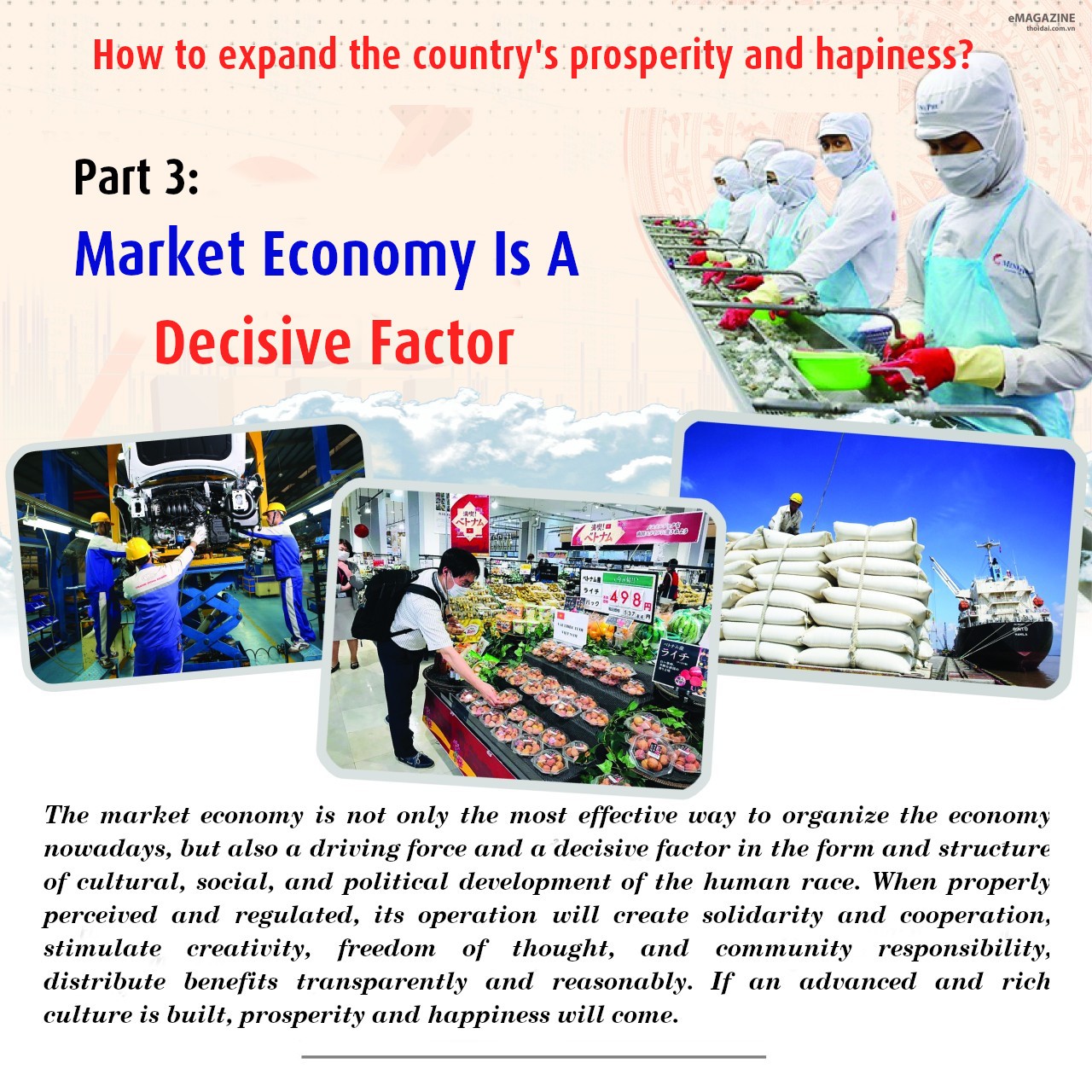 |
 |
| Prosperity means wealth in material, culture, and creativeness. Happiness is the satisfaction of cultural, spiritual and material needs. A society achieves happiness when it has prosperity, justice and peace, when members in the community care for and unite with each other and have common values and goals. The happiness of a community can only be earned when all its members are basically happy. Abundance in creative ability is the basic criteria of true prosperity. Abundance and equality of opportunity and enjoyment are the criteria of happiness. Prosperity and happiness are concepts with historical-epochal value, which means the above criteria must correlate with the needs, common value standards of the internal and external community at specific stages of development and era of history. In different eras, for example, primitive times, feudalism, capitalism, the material needs of society were at different levels, with different scales to measure prosperity and happiness. When most of a society is in hunger, then having enough food is the foundation to determine prosperity. That is the meaning of the saying "Rich in food, abundance in military strength.” When the nation is invaded by foreign countries, happiness means independence. The criteria of happiness change as human civilization develops. |
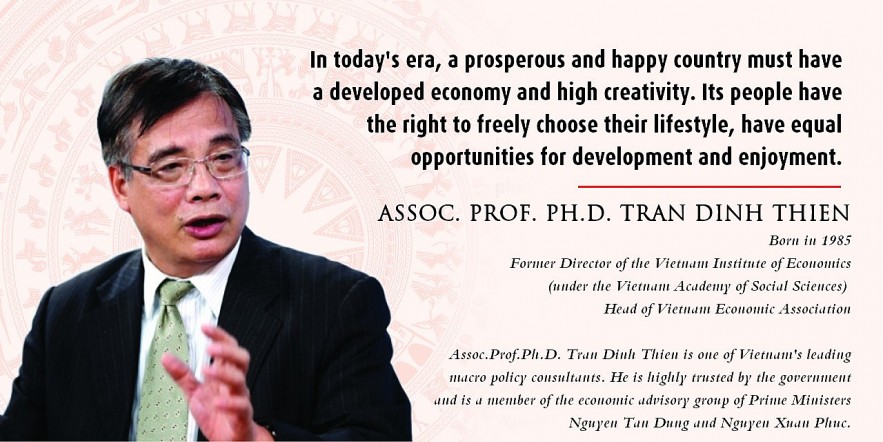 |
| In today's global economy, prosperity, and happiness must be judged according to, and increasingly follow, the common criteria of humanity's values. In today's era, a prosperous and happy country must have a developed economy and high creativity. Its people have the right to freely choose their lifestyle, have equal opportunities for development and enjoyment. These criteria are inherently based on the development of the market economy, therefore, they have similar content to the principles of the market economy. The market economy does not merely benefit personal wealthiness or stimulate people’s greed as assumptions. Such an economy mainly creates competition, thereby forming a strong development motivation, stimulating the creativity of individuals, promoting, connecting and operating mechanisms to distribute rights and benefits towards fairness, binding responsibility for action, and social trust. |
 |
| The desire for prosperity and happiness of a society can only be achieved when that society has freedom. Freedom means having space to work independently, conditions to fulfill aspirations, and faith to dream. To think of future happiness, to have far-sighted vision, a person must first have the desire and ambitions to live. A person who never leaves his small village cannot have great knowledge and big goals. Vietnamese people traditionally attached personal and social freedom with “goddess blessings” thinking, which was frequently shown in Vietnamese folk verses and proverbs, such as “Ơn trời mưa nắng phải thì” (Thanks for the gods’ blessings that we enjoy good weather). That way of thinking shows people’s lack of confidence in themselves and dependence on outside factors, the most common of which is the “gods.” It shows the low ability of individuals and communities. A weak individual must rely on (I would like to emphasize, rely on, not need support from) the society, cannot escape social bondage to become an independent and free individual. Relying on the king, high-ranking officials, or on everything shows the same thing. Gratitude is a precious and loyal quality of human beings, the moral foundation to build a humane society. However, outrageous gratitude leading to dependence is the most awful obstacle, leaving people no courage to think and act but relying on nature and outside forces. Karl Max called the situation "alienation.” People who naturally and simply lose and are deprived of their right to dream, even to think independently and creatively, in fact, lose the right to freely think and independently act, which are the ultimate rights of each person. Dependence means losing freedom. With that in mind, we better understand the meaning of Uncle Ho's words: “Independence - Freedom - Happiness.” Vietnam’s geopolitical position creates historical features, making the requirement for independence regular, continuous, and essential. Independence must be regarded as the first basic goal. Freedom is the premise of happiness. All those three are inseparable. Society needs to have many different structures to ensure its people’s freedom. However, in this day and age, the core way to freedom, in a broad sense and in economic sense as I mentioned above, is to rely on the development of the market economy, considering it the main method to solve problems. The market economy promotes competition between individuals and actors. Competition mechanism stimulates creativity, thereby, helping and forcing individuals, organizations, and communities to improve their capacity. Those who have the ability will be less dependent. Independence is the core of freedom. |
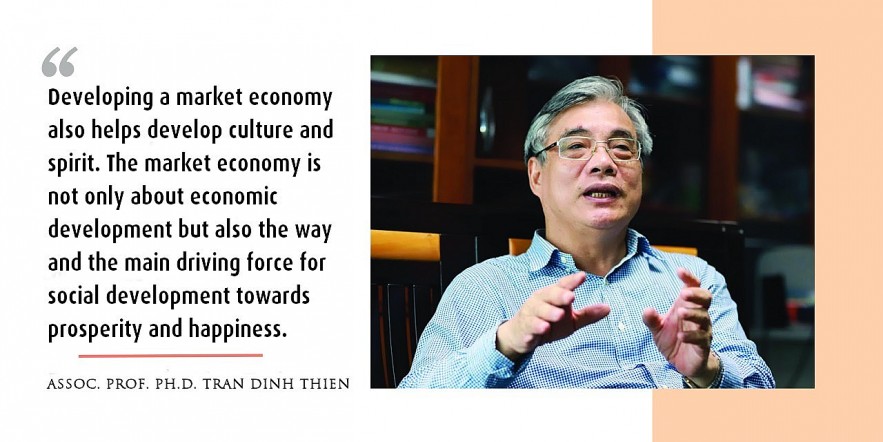 |
| If a culture wants to develop to a new level of civilization, it needs freedom of thought, freedom to dream, space for creativity, competition, integration, and cooperation first. Those requirements resemble a market economy model. In the current context, only the market economy can explore and promote the mentioned factors. Our society is so used to stereotype that it produces dogmatic individuals that are lack critical thinking. Knowledge and way of thinking are limited in a narrow cultural space left by the older generation, posing difficulty for people to create, for the community to learn new things. In this era, human knowledge is broader than ever, therefore, the old way of thinking must change to exploit and keep up with the world. |
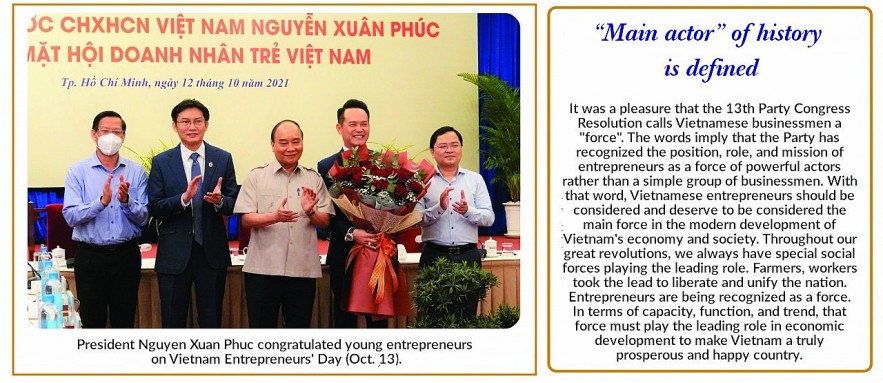 |
 |
| Culture is a constitutive pillar of human society. Happiness is an asset that must be increased proportionally to the development of culture. Vietnamese people have a rich and humane culture. However, it still needs to be nurtured. In addition to promoting our culture’s potential, strengths, and giving it new “nutrition,” we need to take out elements that are no longer valuable or suitable to life requirements. In the context of strong integration, a market economy, globalization, and technology, the only way to protect individuals' and community’ happiness is protecting and enriching cultural identity while enhancing integration capacity to learn global cultural quintessence. In Vietnam, that problem should be considered in two aspects. Firstly, Vietnam has a diverse and strong village and regional culture, which has united people to fight against natural disasters, epidemics, enemies, to cooperate in business, cultural and spiritual activities for thousands of years. Our people connect with each other because of that culture, of which we are proud. Residents in urban areas, though have better conditions for cultural activities and denser population, have much weaker community bond than those in rural areas. Village and regional cultures create certain strengths such as patriotism and specific value reserve and promotion. However, it can easily become a conservative ideology that restrains the acceptance of other cultures and changes to suit current requirements. It builds strong internal solidarity but easily creates drawbacks when integrating into a greater community. The era of integration and market economy requires cooperation and reconciliation at different levels, therefore, this weakness must be overcome. Secondly, Vietnamese culture has strength in its humanity, kindness, and generosity. Rarely does any nation have such tolerance, even towards its enemies, as the Vietnamese. This quality brings a rare and powerful development advantage for us in the era of global integration. The Vietnamese people easily create sympathy, make friends, turn enemies into friends, enhance both the strength of Vietnam and its partners in cooperation. Collaboration not only produces materials. More importantly, it helps Vietnam and its partners improve their capacity and gather global strength. In Vietnam, Northerners have loyalty, sophistication and depth. Southern people are open and friendly. Those are all the roots of humanity that not all nations have. It is necessary to exploit those precious qualities and turn them into fuel for development. |
 |
| If a community aspires prosperity and happiness in the context of globalization, the ability to unite members and cooperate with partners is one of the most important qualities that it must have. These two factors are essentially one, just applied in different spaces. I think our nation is not really strong in solidarity. We were in fact very united, which helped us defeat many powerful enemies. However, it is a unique kind of solidarity that only awakens when "the country is in danger,” when all of us are forced to share a common survival goal. Perhaps our solidarity to do business and to develop are not really strong or at least have not been revealed yet. Uncle Ho put much focus on solidarity, mentioning it three times in a statement about the strength to win the war against a more powerful enemy. His statement not only affirms the invincible value of solidarity but also teaches and raises concern about the risk of division, which is characteristic of a small farming society. Meanwhile, our people are kind, tolerant, and generous. Vietnamese love each other and stand together in difficulties. However, affection and solidarity, and cooperation are different concepts. Affection usually appears when seeing others in trouble. Our people are rich in compassion, we can share, can sacrifice, which is precious in forming a national personality. However, this personality is short-term, spontaneous, associated with momentary incidents. It rarely has a stable structure. Solidarity, however, is the ability to find common ground and each other's strengths to cooperate for a long time. Must know how to adjust to each other to be compatible. Solidarity requires the ability to adjust one’s needs to join the common fight, build a common cause on a big scale and long term. Such cooperation requires the sincerity of all actors involved and needs common terms and commitments. The lack of solidarity is shown through division caused by differences and conflicts of interests, some of which come from different cultural perspectives. That is to say, to earn great national solidarity, that nation must build its common portrait, symbol, and cultural philosophy, and unify different local structures. Such actions need to be done in both traditional culture and modern culture. Vietnam used to have and is nurturing cultural portraits and symbols of national level such as the folk “Con rồng, cháu tiên” (Children of dragon and fairy). All Vietnamese people were born by a mother. We need to focus on that folk, which says Vietnamese of all lands are born from an egg sag, promote its meanings and expressions through fields of education, propaganda, scientific research. Such work aims to build national solidarity of great stature, great value, covering the culture of all regions and classes in a sustainable and convincing way. Uncle Ho said solidarity was as important to the Party as the pupils to human eyes. In this era, his statement can be explained as national solidarity serves as bright eyes to shine on the road to prosperity and happiness. |
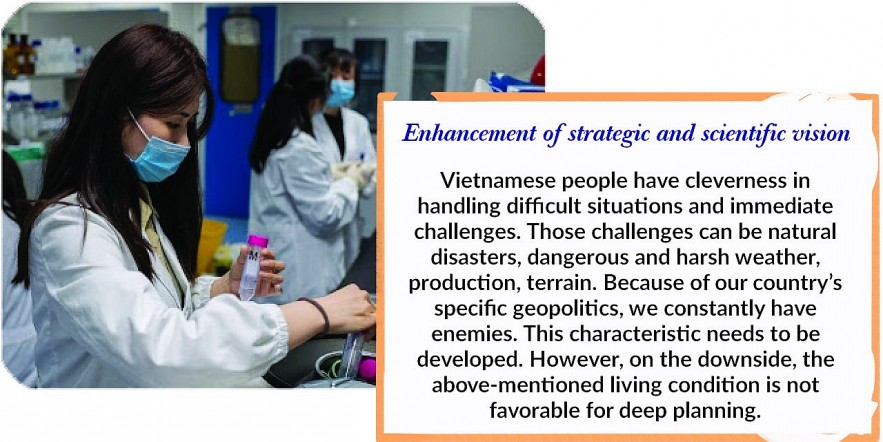 |
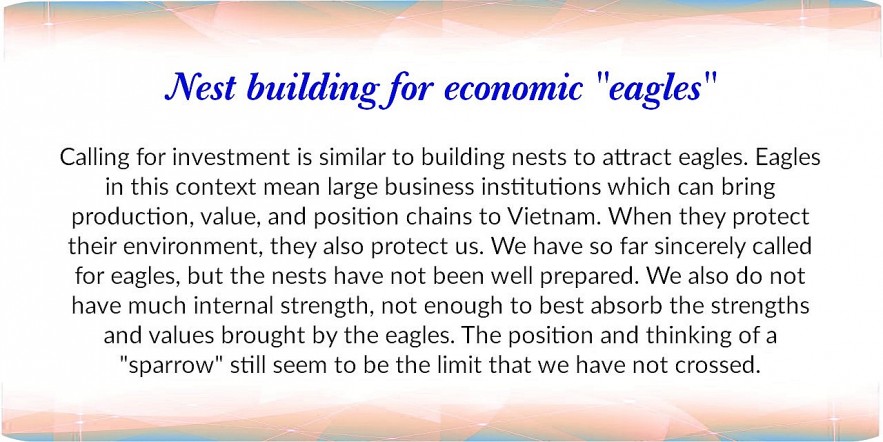 |
|